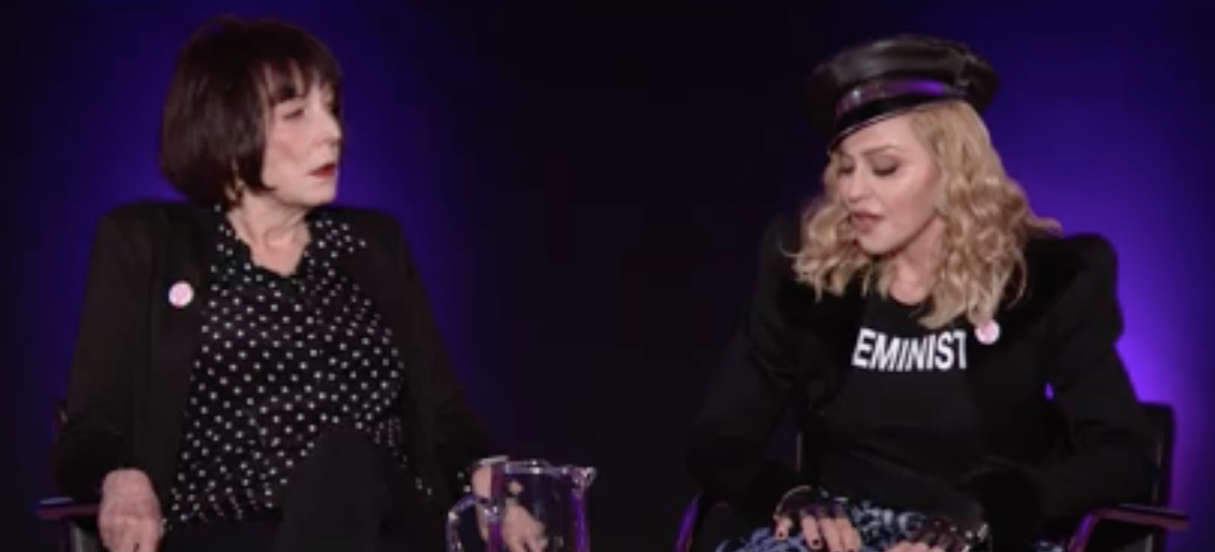For those fortunate enough to gain entry into the Brooklyn Museum’s Brooklyn Talks series on January 19th–the eve of Obama’s final night as the holder of a peaceful presidency–it was plain to see from the outset (after an initial screening of Madonna’s 2013 short film, secretprojectrevolution, to set the tone for the evening) the symbiosis and harmony between longtime visually provoking artist Marilyn Minter and longtime visually provoking artist occasionally known for singing Madonna. Minter, ten years Madonna’s senior, possessed a comparable aura of equanimity in between intermittent bouts of coughing and threatening to kill (she’s feeling very violent these days).
Moderated by playwright Elizabeth Alexander, the conversation was opened with a quote by Muriel Rukeyser: “What would happen if one woman told the truth about her life
Contrasting the now to a time in New York when you actually had to leave your apartment to find friends or even strike up new acquaintances, Madonna noted, “You were earning your connection to humanity, and we don’t have that anymore.” In many regards, this is part of what Madonna attributes to Trump’s win: “I believe Trump was elected for a reason. To show us how lazy and lackadaisical we’ve become.” Elsewhere, Minter echoed the same sentiments, lamenting, “It’s the last gasp of patriarchy.” And yes, one does indeed imagine a lot of gasping (and gassing) going on in the White House as the Trump administration settles in for what will undoubtedly be one of the darkest times in both American and world history.
What it boiled down to thematically for the evening was a dissection of why and how Trump could gain this role. As Minter put it, “The most unqualified candidate that ever ran beat the most qualified candidate that ever ran. And it was all rooted in misogyny.” This notion led into a discussion about how women find it much more natural to pit themselves against each other rather than rally to tap into a type of power that no group of men could ever possess. The competitive nature between women, of course, is deep-seated in biology. Madonna then jokingly asserted, “I’ve supposedly been in a fight with Lady Gaga since she was born.” But getting at the core of this whole women hating women phenomenon, Minter admitted, “When I see an artist whose work I love, I wanna kill her. But what I do instead is tell her how much I love it, and the poison drains.” To this, Madonna iterates, “All we have is love.” And yet, this still doesn’t stop her from being flummoxed by the ratio of women versus men who are scandalized by her work. “My biggest naysayers and detractors have been women,” Madonna unsurprisingly confessed. This fact, of course, drives home one of the primary points of the evening’s discussion: that, to borrow a phrase from Madonna’s Billboard speech–which she quoted heavily throughout the night–women have been oppressed for so long that they genuinely believe they need “to back a man to get the job done.” Unfortunately, backing a man seems to mean going against a woman, doubting both her abilities and her worthiness.
Nonetheless, what one took away from the conversation is that, now more than ever, art is here as salvation and protest. A way to fight back peacefully. Madonna, undeniably channeling Minter, insisted, “I put all of my pain and all of my heartache into my work.” That pain and heartache is going to inevitably make a change if we all pool it together.






















